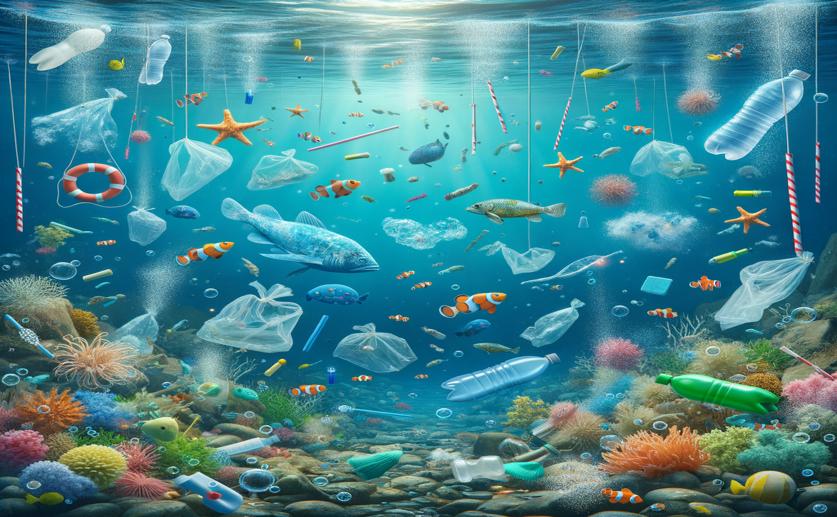
Why Ocean Microbes Aren't Breaking Down Plastic Despite Pollution
Jim Crocker
16th May, 2024

Image Source: Natural Science News, 2024
Key Findings
- The University of Auckland study examined the global ocean microbiome's ability to degrade various environmental plastics
- Some microbial enzymes can break down certain plastics, but the overall capacity of the global ocean microbiome to degrade diverse plastics is limited
- Specific regions show higher microbial plastic degradation potential, influenced by local environmental conditions and microbial communities
EnvironmentGeneticsMarine Biology
References
Main Study
1) Uncoupled: investigating the lack of correlation between the transcription of putative plastic-degrading genes in the global ocean microbiome and marine plastic pollution
Published 15th May, 2024
https://doi.org/10.1186/s40793-024-00575-4
Related Studies
2) Global assessment of marine plastic exposure risk for oceanic birds.
3) Implications of plastic pollution on global marine carbon cycling and climate.
4) Sources, sinks and transformations of plastics in our oceans: Review, management strategies and modelling.



 11th March, 2024 | Jenn Hoskins
11th March, 2024 | Jenn Hoskins